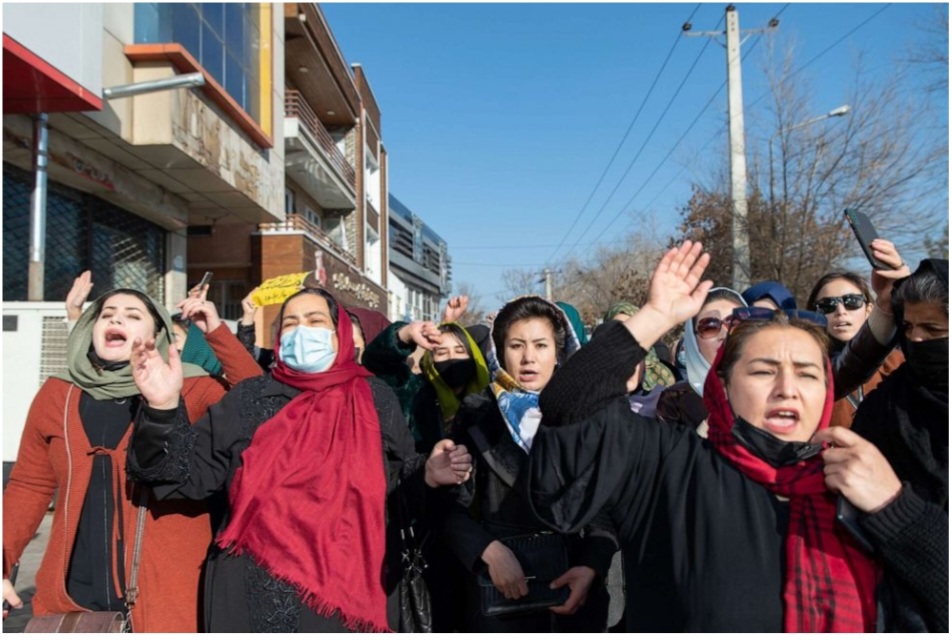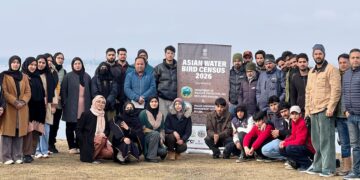Amina Mohamed discusses the United Nations’ humanitarian work for Afghan women.
The Afghan Taliban began reversing women’s rights soon after returning to power in 2021, imposing bans on education, work and the ability to travel without a male guardian. Women who have protested the oppressive new rules face arrest and the possibility of being tortured and forcibly disappeared, according to a report from Amnesty International.

United Nations Deputy Secretary-General Amina Mohamed recently traveled to Afghanistan, where she met with Taliban leaders to discuss the harsh restrictions on women and girls. Mohamed spoke to ABC News Live’s Mona Kosar Abdi about the crisis Afghan women are facing and the U.N.’s ongoing humanitarian work in the country.
AMINA MOHAMED: Absolutely. It was a huge task and a half. We did a lot of consultation before we got there with Afghan women, Afghan women who have been in the United States for a couple of decades, those who’ve come just recently as the Taliban came back in and many Afghan women within Afghanistan, countries in the neighborhood. They have a right to be in the workplace. In fact, Islam itself, the jihad, was founded by a woman and the prophet’s an employee of a woman. So, these are things we brought to the front, and we were able to have those discussions. They are denying rights to women for education and in the workplace, and that has to be reversed.
MOHAMED: Well, as the Taliban came back into Afghanistan, the United Nations stayed to deliver because we were very concerned that those reversals would come very quickly. So it was important for us to be there in the humanitarian space to ensure that lives were saved and the majority of those women and it had to be women to women’s services. So we shored that up. The international community rightly were concerned and took a position to pause on the funding. We made the case for, please don’t do that because this will harm women and girls and the vast population that are vulnerable and poor in very harsh circumstances in Afghanistan. So we worked around how to better deliver, even in the most extreme circumstances, where these bans were in place. The U.N. continues to be there in its mission with its country team, deploying whatever space that we can push and expand to ensure that women and girls come back into the workplace, come back to school, continue to get delivered of services that are lifesaving.
MOHAMED: Well, this has been something that we’ve been engaged with around the world. It is a huge challenge to women and girls’ rights, where there are harsh laws in place that enable this practice to happen. So what we do is to try to look at the root causes, which is why I say that families, the levels of poverty have to be addressed, so families don’t have to give their children away in marriage or otherwise, because in some cases they’re selling them.
MOHAMED: Well, there is no formal economy to talk of. Everything is in the informal space. And it’s very difficult for them with the sanctions and with no economic framework or financial structure to operate, to allow, you know, salaries to be paid in basic government entities or for the economy to move forward. And the pressure that we can put upon them, again, is about their economy. They care about their economy. They want to trade. They want to be recognized. And that’s where we can put some pressure for them to, you know, abide by those values and principles of the international community to bring them back in. So clearly, the economy matters. Clearly, they appreciate, in fact, they told me they appreciate the funding that comes on the humanitarian side. But that’s one thing to appreciate, it’s the other to behave, it’s the other to do the right thing by women and girls. But the economy is certainly up front and center. There are big issues around that.
MOHAMED: You speak to Afghan women, they are the best you’ll find anywhere. And you can see that with those who are in diaspora, incredibly smart and really beautiful women from the inside out. That’s being snuffed. It is International Women’s Day. Every woman that knows that their daughter can go to school tomorrow in the developed world needs to think about that and raise their voice to amplify what is a right for Afghan women who have daughters. And that does help. Whether you tweet it or you speak about it or you charge your representative in the parliament, it’s so important around the world that we don’t let this die.
KOSAR ABDI: Deputy Secretary-General Amina Mohamed, thank you so much for your time. We really appreciate it.
MOHAMED: Thank you and Happy International Women’s Day.
ABC News






